OCTOBER 8TH
OCTOBER 13TH
BTCF Board Member Dr. Gia Marson talks with Goop about helping loved ones with an eating disorder.
Breaking the Chains and NEDA
Breaking the Chains Foundation partnered with NEDA in support of National Eating Disorder Awareness Week on February 26 – March 4th by promoting awareness via a variety of our social media networks, celebrity support, sharing NEDA’s screening tool through our social media platforms, as well as having our own online event through out the week. Also joined NEDA in forming our own team for the Los Angeles NEDA Walk on April 7th, walking and raising funds in support of stopping eating disorders.
GREAT NEWS
The award winning short film “FINDING ALICE” was an Official Selection both as a short film and written word in The Hollywood Dreamz International Film Festival and Writer’s Awards in Las Vegas, August 2017!
UPCOMING NEWS
STAY TUNED! – BTCF YOUNG HOLLYWOOD CAMPAIGN
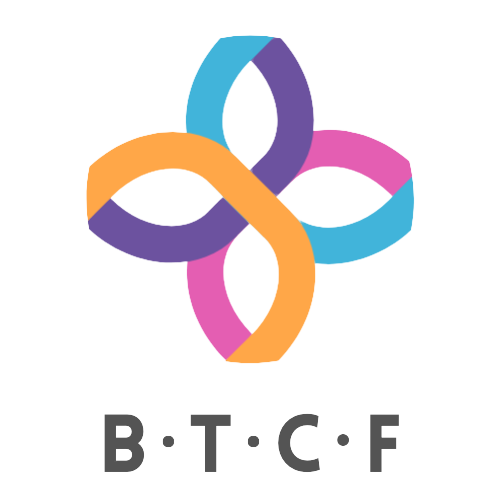

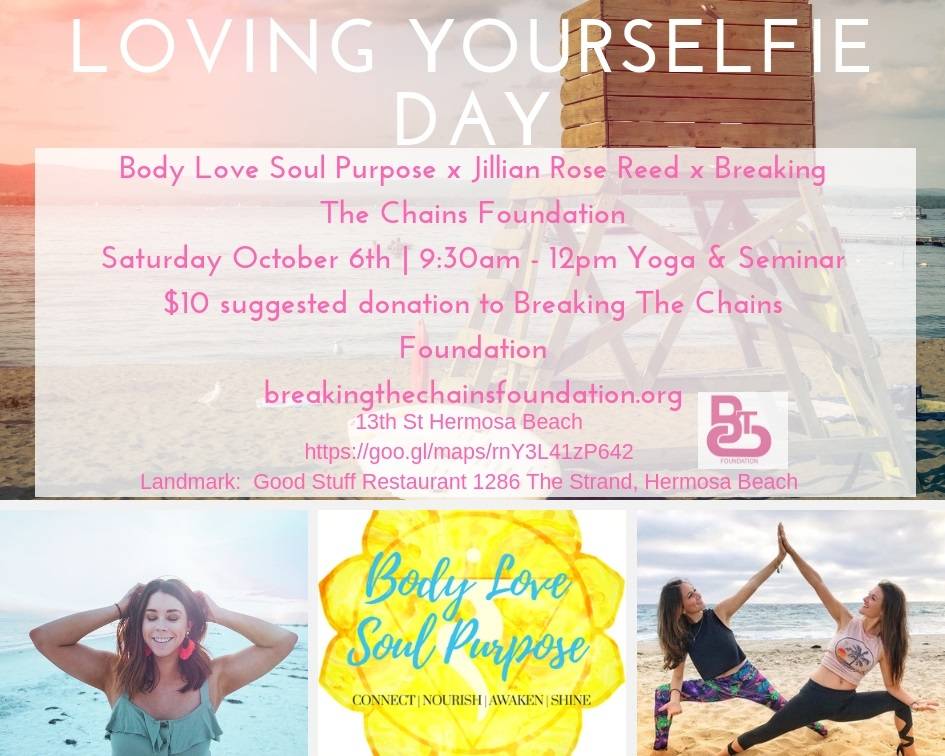
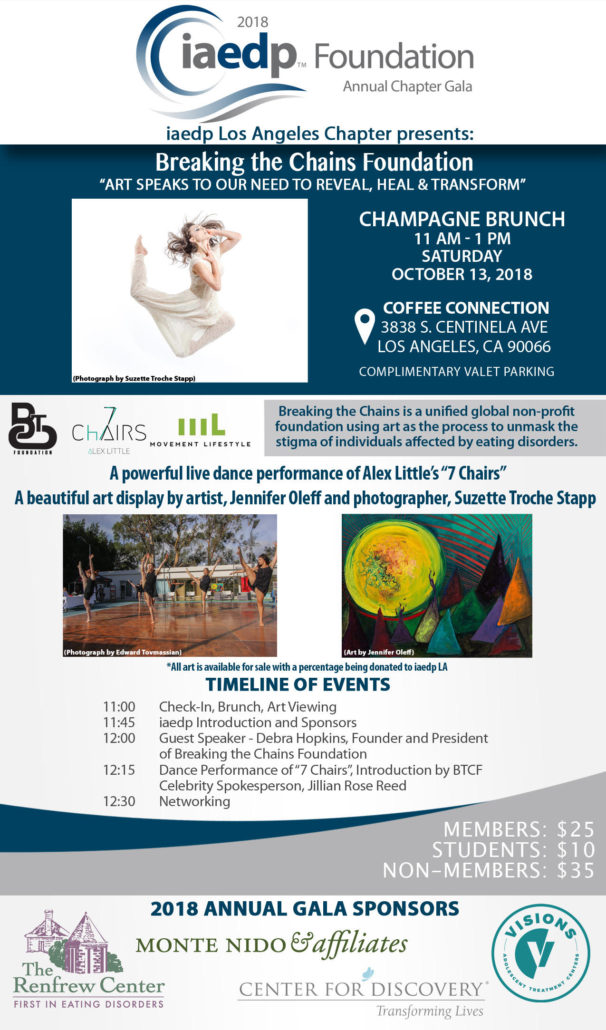
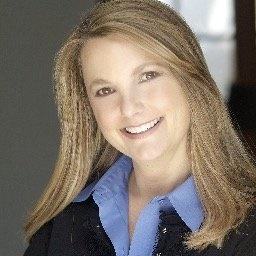
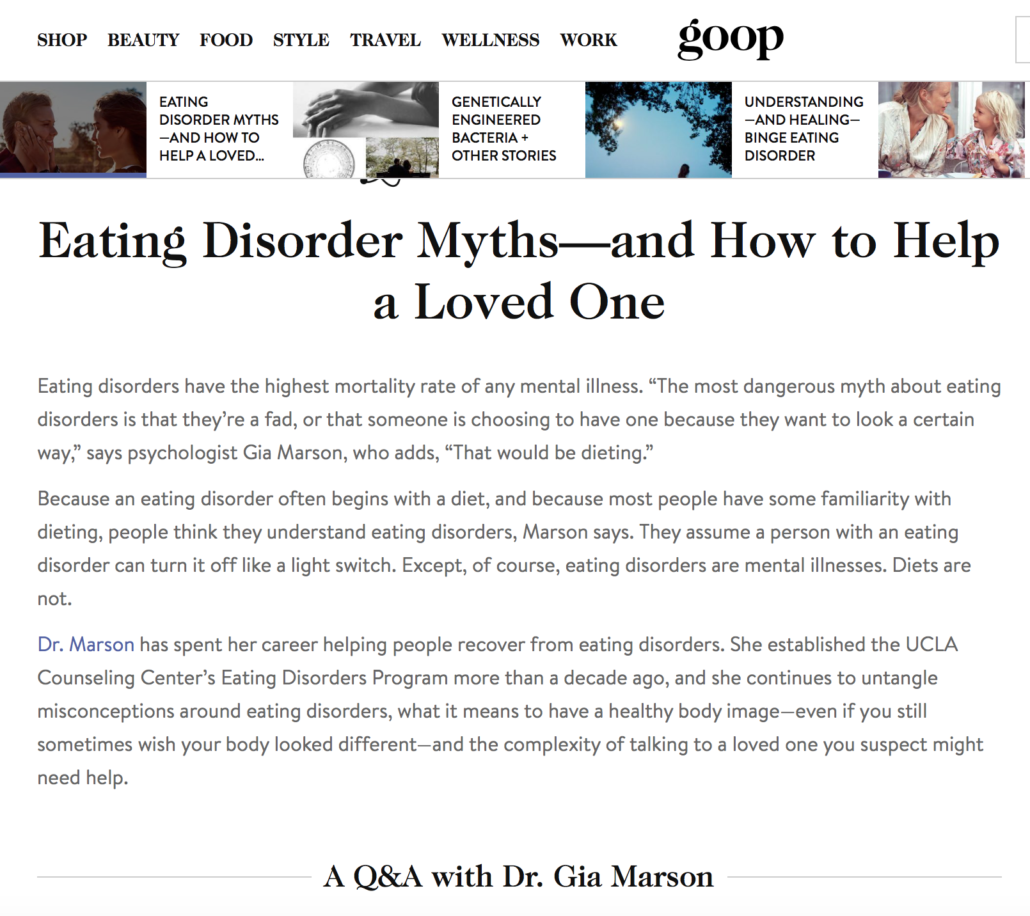
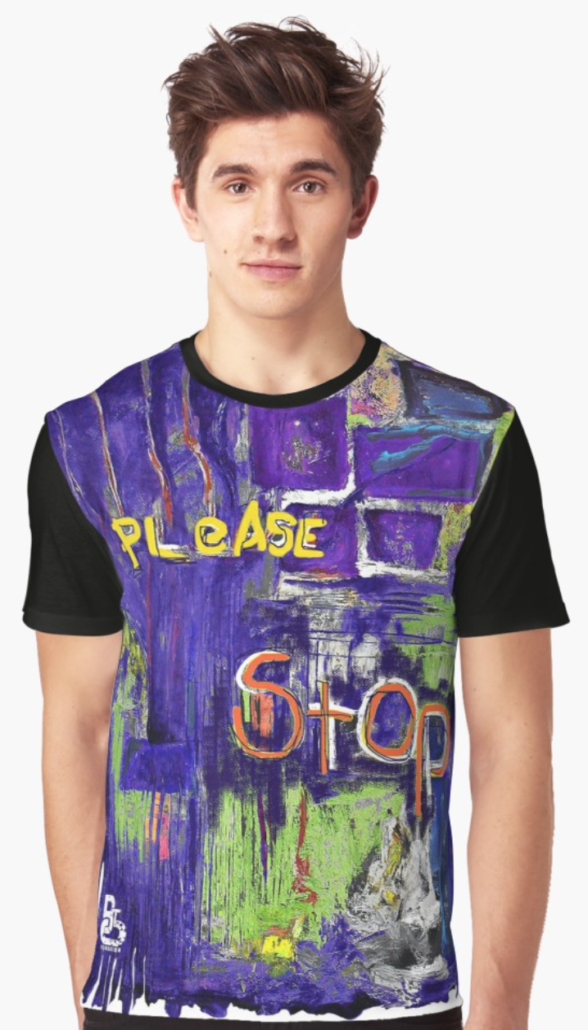

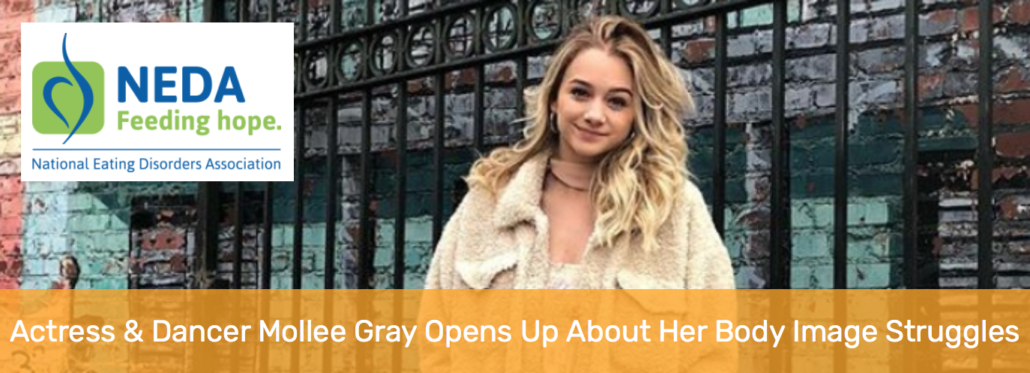
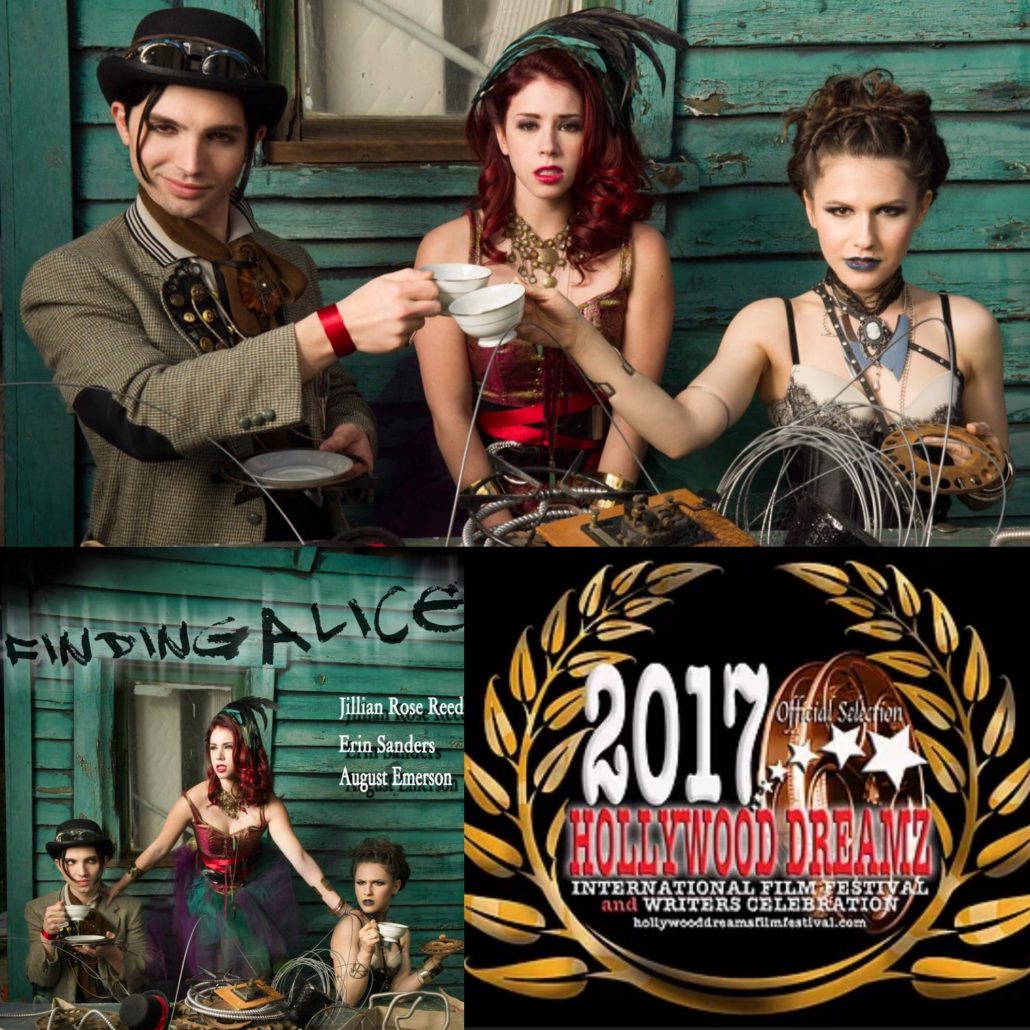
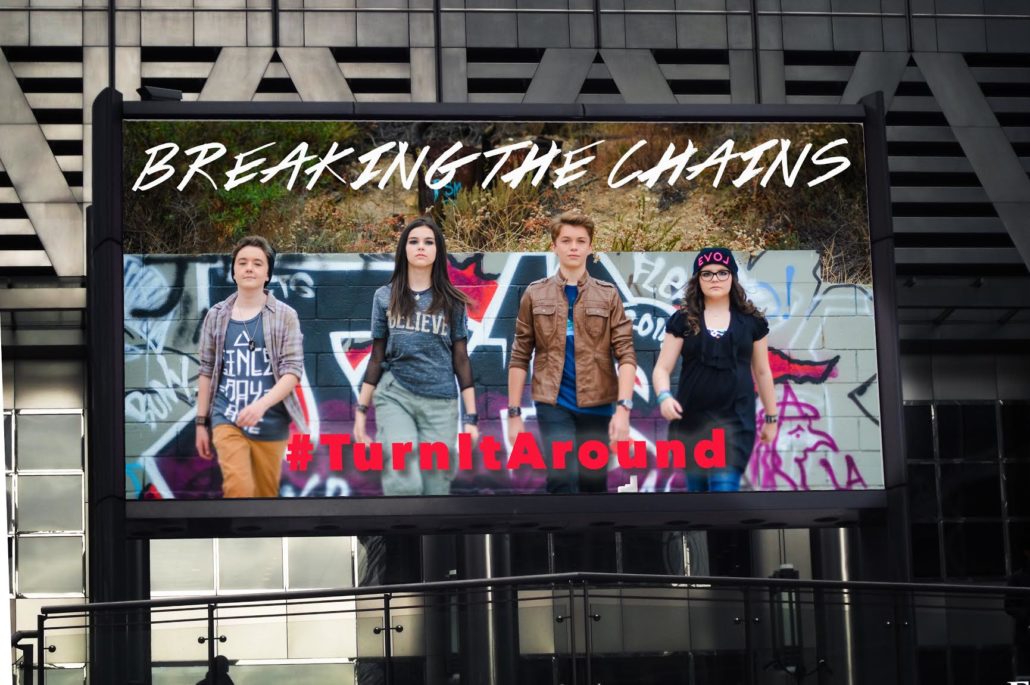



An Interview With Taylor Floyd
Artist Blogs“It is sadder to find the past again and find it inadequate to the present than it is to have it elude you and remain forever a harmonious conception of memory.” ‘ F. Scott Fitzgerald
AN INTERVIEW WITH TAYLOR FLOYD
BTCF: What has dance meant in your life and when did you begin?
TAYLOR: I took my first dance class when I was 2 years old, and then it became a consistent part of my life when I was 7 years old. My childhood was filled with long days at my dance studio, and long dance competitions on the weekends. As I entered my teen years and finally started high school, I became a part of my high school’s dance team where I devoted an immense amount of time and energy for the next four years. From a young age, dance has been the one thing that I turned to during good and bad times in my life. In moments having the feeling of defeat, sadness, frustration, I was able to lean on dance and feel everything through my body and through each movement. It is one of the most amazing feelings, and there are not enough words to describe it. Dance will always be my first love, my passion, and I know it will be a part of my life forever.
BTCF: These past couple of years has been challenging for many people. How has it affected you and what growth has taken place as well?
TAYLOR: These past couple of years have been very challenging for me and my mental health and wellness. I started my freshman year of college about 6 months before the pandemic came about. As the world shut down and I transferred from on campus to school online, it was a weird adjustment. In the beginning, I enjoyed doing school online and I was putting a lot of effort into making a schedule out of my day. It wasn’t as easy to continue as I started to struggle with depression and anxiety. I feel like a lot of people can relate to the idea that the first year in quarantine was a very lonely time with little to no social interaction, and that brought out a side to me that I didn’t know existed. I have had to work really hard to pull myself out from the bottom day by day, but that is easier said than done. Depression and anxiety come in waves, but I am finally feeling like myself again and I am so proud of myself and the progress I have made over the last couple of years. I started to dance a lot more in the privacy of my own room and it was important to me to have something to look forward to, even if it was just going for a walk or making a delicious meal.
BTCF: There was something special that happened in your life while taking a trip to Seattle Washington in March, can you share a little bit about it and what has meant to your wellness?
TAYLOR: In March I planned a spring break trip with my best friend to Seattle, Washington and it was one of the best things that I could have done. It was my first time traveling somewhere with a friend for a little vacation and I absolutely fell in love with the city. After spending a couple days in Seattle, we drove back to her college town where I ended up staying for about 3 months. During this time, I experienced an immense about of self-growth, self-love, and balance in my life. My over all wellness had improved so much without any force, as I was genuinely just enjoying life and time with my best friend, while meeting new friends, still finishing school online, and making so many new memories. I found a new sense of independence and I am so grateful for my time in Washington.
BTCF: As a college student during a time when things were shut down, what was that like for you?
TAYLOR: I was only in college for about 6-7 months before things were shut down, and it was a very weird adjustment. Before school started, I was already nervous to start attending and become adjusted to my new schedule and workload that was going to come with it. When everything shut down, moving to online school was an interesting experience for me. I quickly became introverted therefore doing all my classes online, while only having a couple of Zoom meetings was in my favor. I was able to work in my own space and I definitely enjoyed that part of it. However, with that came its on struggles. Actual interaction with my classmates obviously became less than it was before, and that was important because it was my Sign Language classes. With the lack of that social interaction, I felt my capability to fully learn the language and communicate during class were limited.
BTCF: We have enjoyed working with you on a couple of occasions – being a dancer in one of our board members, Alex Little’s breath-taking “7 Chairs” performance and a dance/paint/music experience we did in studio. We love to use art as a healing tool. Is dance a form of healing for you and what about it inspires this?
TAYLOR: I really enjoyed working with you and being a part of Alex Little’s “7 Chairs” performance, as well as the beautiful experience in the studio. Dance is absolutely a form of healing for me. There are so many styles of dance, so many different genres of music to dance to, and through that I have the ability to tell my story. There is absolutely nothing better than using dance as a form of healing because I have complete control over my body and the way I move. With dance I am able to express everything I am thinking, without having to use words.
BTCF: You graduated from College of the Canyons with an Associate Degree in Liberal Arts and Science as well as being on the honor roll and awarded Valedictorian! What has this meant to you in your life and where do you see yourself going from here?
TAYLOR: I am so proud to say that I have graduated with my Associates Degree while being on the honor roll and awarded Valedictorian. School has not always been an easy thing for me and when I started college, I was very nervous for the amount of work and time I knew I was going to have to put into studying so that I can truly do my best. Graduating was an amazing feeling, and I am so excited to say that next I will be continuing my education at California State University of Long Beach.
BTCF: Since your main study of focus is American Sign Language, what inspired you toward this field and has it had a personal effect on your life?
TAYLOR: My grandparents have inspired me the most in regard to my main study of focus being American Sign Language. They are both Deaf, and I grew up learning Sign Language to communicate with them. When I started college, I had no idea what I wanted study or what I wanted to focus on for my career until I saw the American Sign Language Interpreting Program that was offered. Immediately I signed up, and I have had the most fun learning about the Deaf community and improving my signing skills every day. Communicating with my grandparents has improved more than I ever thought it would, and they have been so helpful and inspiring for me to continue to learn.
BTCF: What are three of your hobbies and how do they help create balance in your life?
TAYLOR: Three hobbies of mine are traveling, cooking/baking, and weightlifting. After traveling to Seattle, I realized how much good that did for me. It helps me get out of my comfort zone, and I like being able to adapt to new places and create memories in new places. Cooking and baking are something I got into within the last year or so more intensely. I really enjoy finding new recipes and the simple act of making a fresh meal from my kitchen and having it taste so delicious feels rewarding and makes me so happy! Weightlifting is something I started to do in 2020 when the pandemic hit but have gotten more into it within this past year. I have really fell in love with going to the gym and seeing how much stronger I am getting week after week is an amazing feeling. I get to listen to my favorite music, and I will typically workout for about an hour or so. Post workout is a feeling like no other and really excites me to see how much more I am going to grow and how strong I will become.
BTCF: Do you have three self-care tips? If so, what are they and why?
TAYLOR: My first self-care tip is to surround yourself with people who you love and love you in return. It is so important to have people in your corner who support you and be there for you but will also give you tough love if needed. Another self-care tip is to be more understanding towards yourself. It can be a little bit easier to be understanding to others more than to yourself but being compassionate and understanding towards yourself can be extremely helpful. My last tip is to find one thing a day to look forward to. A walk, a yummy meal, a new book, literally anything that you can look forward to because I think enjoying the simplest things in life, make life more enjoyable.
BTCF: Your smile is so contagious! What are the joys in your life?
TAYLOR: The joys in my life include my friends and family. I love my people in my life and in my corner with my entire heart. I love seeing them thrive and doing their best in their life and supporting them through everything. My people are my world.
BTCF: Social media is a constant and so many young people absorb a tremendous amount of it all – what tip would you tell a young person your age when it comes to body image and self-love?
TAYLOR: When it comes to body image and self-love in a world where social media is everywhere and so constant, I would tell someone my age to focus on real life, and the present moment. It is so easy to be captivated by everything on social media but when you put the phone down, all you have is yourself. You are the most important thing in your life and its important to act on that and give yourself love and compassion every day.
BTCF: What is your favorite form of dance and why?
TAYLOR: My favorite form of dance is contemporary or contemporary jazz because of the stories you can tell. I also love those kinds of songs, so I really enjoy dancing to them.
BTCF: Favorite inspirational song?
TAYLOR: My favorite inspirational song is “Vienna” by Billy Joel.
Thank you, Taylor!
An Interview With Kennedy Jean Garcia
Artist Blogs“Don’t be a bully, be a bestie!”
AN INTERVIEW WITH KENNEDY JEAN GARCIA
BTCF: What drew you to become an actor, dancer, and model?
KENNEDY: Dance – I always loved to dance even before I could walk. My mom said that when I was a toddler and dancers would come on TV, I would point and say “that!” After I finished chemotherapy and spine fusion surgery, I started my first ballet class and I’ve been dancing ever since. I started modeling when I was 5 or 6 for small shops on Instagram and loved it! And was on my first movie set when I was 5. I knew then that I wanted to do more!
BTCF: For those who aren’t familiar with Down Syndrome, what can you please share about this for a better understanding and well as what makes a person with Down Syndrome unique?
KENNEDY: Down syndrome is an extra copy of the 21st chromosome. You get 23 from your mom and 23 from your dad and people with Down syndrome have one extra. It’s part of your body. You can’t catch Down syndrome from someone who has it and you can’t take it away. I’ll have Down syndrome forever.
People with Down syndrome are unique because we have physical characteristics that identify us. Some of these are almond shaped eyes, a flat bridge on our nose, smaller mouths and ears, short stature and sometimes a single crease across our palm. Not everyone with Down syndrome has every physical characteristic, but it’s cool because we can identify each other when we are out. It’s like being part of a cool club!
BTCF: Your personality creates an instant smile for those who meet you. What makes Kennedy Garcia unique?
KENNEDY: I am unique because I am me! I am an actress, a dancer, and a public speaker who has Down syndrome but mostly I am a teenager who likes to have fun and eat ice cream! I love my life!
BTCF: There are a variety of health problems including leukemia that you have had to overcome and have dealt with both doctors and others who said you would not ever have a good quality of life. Who has been your support team through it all? Anything else you would like to share about this that is important to you?
KENNEDY: My family is my support team. My mom never gave up on me and pushed me to be the very best ME I could be. She never listened to anyone who said I can’t… and now I don’t either.
BTCF: As an influencer with a big following, you are so fun and energetic on your tik tok and always manage to leave your viewers with an uplifting feeling, what motivates you when creating your tik tok posts?
KENNEDY: I just love to dance, and I love to collab with other people and have fun too! It really just makes me happy when people want to dance with me.
BTCF: Speaking of tik tok – you were on our BTCF Team at the LA NEDA Walk in April and being a dancer, you taught our board member/celebrity ambassador Courtney Hope a dance which was so fun! How do you think this creates community with your viewers?
KENNEDY: I hope it makes them happy! I think it’s so fun to dance with people I’ve admired for a long time and especially when I get to teach them dances. It’s so fun! I hope my viewers love it too!
BTCF: Being a motivational speaker, can you share a little bit about the stigma surrounding Down Syndrome and ways that you break down the barriers when giving insight to youth and how creating more awareness can build bridges?
KENNEDY: I go into schools all over and speak about Down syndrome and how to be friends with people with disabilities. Because really, I am just a pretty typical teenager just like them and I want them to not be scared of people like me. It’s easy to be friends with people with disabilities. Just go over and say hello. It could be the start of a beautiful friendship.
BTCF: When did you start modeling and what was your first experience like? Was that the moment you knew the entertainment industry was for you?
KENNEDY: I started modeling on IG when I was 5 for small shops. They would send clothes and we would send back photos. It was so fun! Then American Girl booked me for my first big job in LA and I had a blast! I wanted to do it forever!
BTCF: What are 3 positive messages you can share with youth when it comes to social media working toward self-acceptance and self-compassion?
KENNEDY:
BTCF: As a very young girl, you had to wear what was called a “halo” on your head for six months, can you share its purpose and how it helped your body function better?
KENNEDY: I had a gap in my spine that was very dangerous and needed spine fusion surgery. They took bone from my hip and put it in my neck with metal plates and wires. Then they put me in a halo to heal from that. Without it, I could have been paralyzed, so it really saved my life.
BTCF: BTCF uses the power of art and expression to create inner healing and connection with one’s overall mental health including prevention of body-focused stigma. How do you use art as a healing tool for yourself?
KENNEDY: My art is dancing. I love to dance when I’m in a group or on stage or just alone in my room. It makes me happy and brings me peace. I feel happiest when I’m moving.
BTCF: What does inclusivity mean to you when it comes to over health and well-being?
KENNEDY: Inclusion is everything. I have always been included in my schools, in my community, and now in the entertainment industry. It has sometimes been a fight, but it’s so worth it.
BTCF: What was it like to be a featured model in the launch of Mille Bobby Brown’s makeup line? What did it mean to you personally?
KENNEDY: That was one of my favorite jobs! I was so excited to work with a brand that I love and an actress I admire. It was a great representation of inclusion as well! Florence by Mills has continued to collab with me which is awesome too!
BTCF: When it comes to combating stereotypes and inspiring youth who have Down Syndrome, what are 3 things you can share with them?
KENNEDY:
BTCF: Social media is a tricky thing – what are three things you would advise youth when navigating through it when it comes to what appearance ideal means?
KENNEDY:
BTCF: For those who struggle with any disability and/or health challenge – do you have one message you would like to share with them?
KENNEDY: Never forget you are strong, smart and beautiful.
BTCF: What are your hobbies outside of the entertainment world?
KENNEDY: I love to go to the beach, hang out with my friends and my boyfriend, eat sushi, and go to the mall.
BTCF: What are 3 of your favorite self-care tips and ones you do for yourself?
Thank you, Kennedy, for sharing!
To check out more about Kennedy and her news – please visit:
www.Instagram.com/kennedyjean04
imdb.me/kennedyjean04
June’s Recipe: Banana & Strawberry Foster
Canvas of Culinary ArtsBananas and Strawberry Foster
by Chef Gason Nelson
2 tablespoons unsalted butter
1/2 cup dark-brown sugar
1 teaspoon ground cinnamon
Few splashes of vanilla extract
1/4 cup good quality dark rum
8 ounces strawberries, hulled and sliced in half
8 oz sliced bananas
1 loaf of butter cake or pound cake
Instructions
Heat butter, sugar, cinnamon, vanilla extract, and rum in a medium skillet over medium-low heat. Cook for 4-6 minutes, stirring while you cook. If the mixture catches on fire, turn off the heat until the flame subsides and then continue cooking.
Add strawberries & bananas, stirring to make sure they are all coated until warmed through, 2-3 minutes.